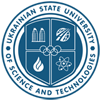Driving National R&D: Methodological Insights into Developing a Classifier for the Ukrainian National CRIS System by the State Scientific and Technical Library of Ukraine
DOI:
https://doi.org/10.15802/unilib/2024_315157Keywords:
Research and Development (R&D), National Current Research Information System (CRIS), classifier development, data management, interoperability, standardized terminology, scientific taxonomy, usability, Ukraine, State Scientific and Technical Library of UkraineAbstract
Objective. The objective of this study is to develop and characterize a comprehensive classifier for research and development (R&D), which plays a crucial role in the effective implementation of a National Current Research Information System (CRIS). The study aims to address the challenges and methodologies involved in creating a system that categorizes diverse R&D initiatives while ensuring interoperability with existing systems and adaptability to evolving scientific fields. Methods. The development of the classifier involved a multi-step process, including consultation with domain experts and reviewing existing classification systems. The study focused on identifying key research areas, ensuring compatibility with international standards, and developing a flexible taxonomy to cover both established and emerging fields. A diagnostic study on CRIS systems in Latin America and insights from similar systems, such as in Croatia and Portugal, were examined to refine the classifier's design for Ukraine. Results. The study successfully developed a classifier that addresses the specific needs of the Ukrainian research landscape, particularly within the Ukrainian Information System for Current Research (URIS). The classifier's structure aligns with international standards and supports interoperability with global databases. Furthermore, the dynamic nature of the classifier allows for continuous updates, making it adaptable to new research fields. The classification system was also tailored to accommodate Ukraine’s unique research ecosystem and infrastructure. Conclusions. The development of this R&D classifier represents a strategic advancement for Ukraine’s research infrastructure, enhancing data organization, accessibility, and collaboration. By addressing both technical and contextual challenges, the classifier provides a flexible, scalable solution that supports long-term scientific innovation. This study highlights the importance of context-driven approaches in creating effective research management tools, positioning the classifier as a robust framework for future developments in CRIS systems. The State Scientific Technical Library of Ukraine has played a pivotal role in developing this classifier, ensuring it meets the specific needs of the Ukrainian research community.
References
Azeroual, O., & Schöpfel, J. (2023). Chapter seventeen – Supporting research information management: overcoming the inherent culture gap between traditional library ethics and the management of CRIS systems. In D. Baker, L. Ellis, C. Williams, & C. Wragg (Eds.), Benchmarking Library, Information and Education Services: New Strategic Choices in Challenging Times (pp. 281-294). Elsevier, Chandos Publishing. doi: https://doi.org/10.1016/B978-0-323-95662-8.00017-5 (in English)
Czerniak, A. (2020, March 27). Implementation of the OpenAIRE-CRIS-CERIF Guidelines in DSpace-CRIS. OpenAIRE. Retrieved from https://www.openaire.eu/blogs/implementation-of-the-openaire-cris-cerif-guidelines-in-dspace-cris (in English)
D’Ippolito, B., & Rüling, C.-C. (2019). Research collaboration in large scale research infrastructures: Collaboration types and policy implications. Research Policy, 48(5), 1282-1296. doi: https://doi.org/10.1016/j.respol.2019.01.011 (in English)
European Commission, Directorate-General for Research and Innovation. (2017). Peer review of the Ukrainian research and innovation system: Horizon 2020 policy support facility. Publications Office of the European Union. doi: https://doi.org/10.2777/095726 (in English)
Fabre, R., Egret, D., Schöpfel, J., & Azeroual, O. (2021). Evaluating the scientific impact of research infrastructures: The role of current research information systems. Quantitative Science Studies, 2(1), 42-64. doi: https://doi.org/10.1162/qss_a_00111 (in English)
Fecher, B., Kahn, R., Sokolovska, N., Völker, T., & Nebe, P. (2021). Making a research infrastructure: conditions and strategies to transform a service into an infrastructure. Science and Public Policy, 48(4), 499-507. doi: https://doi.org/10.1093/scipol/scab026 (in English)
García, A. M. F., García, M. I. M., Gallinas, R. B., Sánchez, M. M., & Gutiérrez, M. E. B. (2022). Integration and open access system based on semantic technologies: A use case applied to university research facet. International Journal on Semantic Web and Information Systems (IJSWIS), 18(1), 1-19. doi: http://doi.org/10.4018/IJSWIS.309422 (in English)
Hallonsten, O. (2020). Research infrastructures in Europe: The hype and the field. European Review, 28(4), 617-635. doi: https://doi.org/10.1017/S1062798720000095 (in English)
Kremenjaš, D., Udovičić, P., & Orel, O. (2020). Adapting CERIF for a national CRIS: A case study. In 2020 43rd International Convention on Information, Communication and Electronic Technology (MIPRO). Proceedings (pp. 1633-1638). IEEE. doi: https://doi.org/10.23919/MIPRO48935.2020.9245344 (in English)
Leiva-Mederos, A., Senso, J. A., Hidalgo-Delgado, Y., & Hipola, P. (2017). Working framework of semantic interoperability for CRIS with heterogeneous data sources. Journal of Documentation, 73(3), 481-499. doi: https://doi.org/10.1108/JD-07-2016-0091 (in English)
Martin, P., Remy, L., Theodoridou, M., Jeffery, K., & Zhao, Z. (2019). Mapping heterogeneous research infrastructure metadata into a unified catalogue for use in a generic virtual research environment. Future Generation Computer Systems, 101, 1-13. doi: https://doi.org/10.1016/j.future.2019.05.076 (in English)
Moreira, J. M., Pardelha, F., Laranjeira, C., Pereira, F., Novais, J., Lopes, P.,...Cardoso, E. (2022). Development of Plan S monitoring and compliance tool in the context of PTCRIS for Portuguese National Science Foundation. Procedia Computer Science, 211, 151-161. doi: https://doi.org/10.1016/j.procs.2022.10.187 (in English)
Vázquez Tapia, R. (2022). Development and characterisation of CRIS systems in Latin America: Preliminary results of diagnostic survey. Procedia Computer Science, 211, 267-276. doi: https://doi.org/10.1016/j.procs.2022.10.201 (in English)








